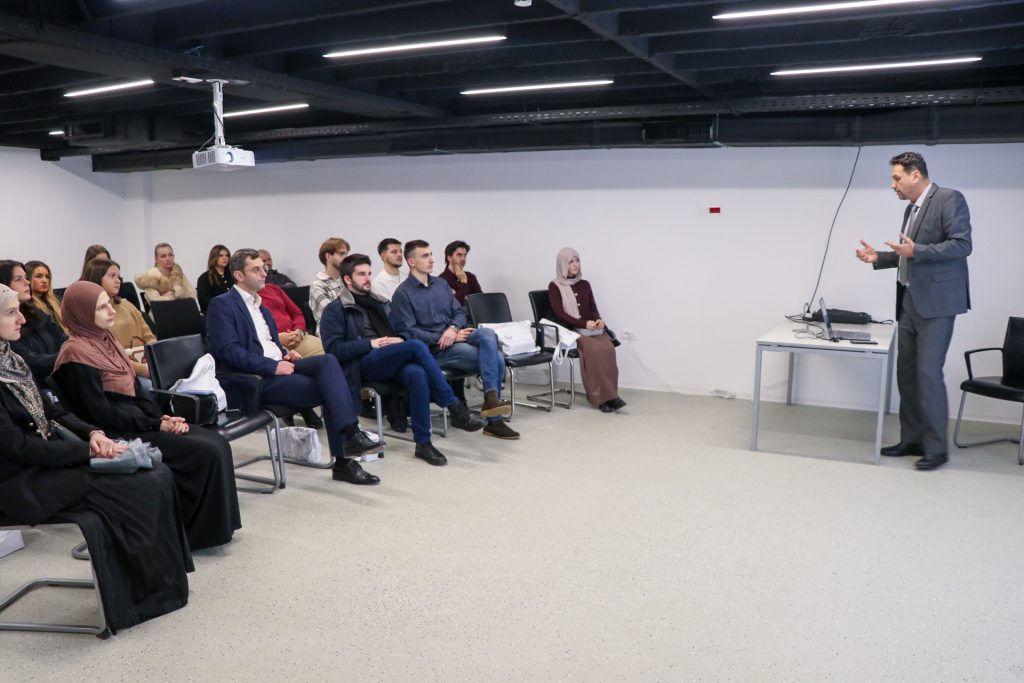It says: mr. Admir Mesković
Islamic banks have an important role in the economic development of society, however, as commercial institutions, they still have their limitations when it comes to contributing to development. These restrictions are supplemented by other institutions such as takaful (Islamic insurance), Islamic investment funds, Islamic microfinance and waqf.
History has shown that waqfs have been able to have a significant positive impact on social well-being. The first waqif from our ummah was Umar, r.a., but also all the other Companions waqifed some movable or immovable property according to their capabilities. Prophet a.s. endowed seven orchards in Medina, and some include the mosque itself in Medina and Masjidul Kuba in his endowment. As a rule, the waqf should have a foundation that is permanent and generates income that is used, among other things, for the maintenance of the waqf corpus. However, endowments do not have to be in real estate, and today cash endowments are especially important, which were represented in the Ottoman Empire as well. Back then, the vaqf performed the role of today’s banks when it comes to financing entrepreneurial activities.
In our region, during the Ottoman period, the health, education and social welfare sectors relied almost entirely on the waqf. However, today the potential of the waqf is largely unrealized. Many people today have a negative attitude and consider the waqf an outdated institution that is no longer relevant and could not play an important role in the modern economy as it did in the past. On the other hand, conventional philanthropic institutions function very well, and we can conclude that the waqf still performs its role today, but mostly in the West.
Waqf moves to the West
Waqf was a dynamic institution during early Islamic society, long before it existed in the West, and made a significant contribution to the development and progress of Muslim societies. There was a large number of waqfs with different purposes that provided various services to society. Through this system, many public services were financed and preserved for centuries in all parts of the Muslim world. Many endowments have survived significantly longer than half a millennium, and some for more than a thousand years.
The success of the waqf system spread to the West during the Crusades, and then it was adopted as a Western social institution, and the appropriate legal regulations governing this area were developed in the 12th and 13th centuries. The well-known University of Oxford in England was built on the model of a waqf, and today it represents the oldest endowment still active in the West, since the first Oxford College was founded by William of Durham in 1249. The University College in Oxford still has the so-called “William of Durham Club” whose members are those who endow part of the property to the university. A significant share of the income of many universities in the West is represented by grants and donations, as well as income generated on the basis of long-ago endowed property. Therefore, it is not surprising that universities pay considerable attention to the so-called strategic fundraising.
When American billionaire Stephen Schwarzman strolled through Oxford two years ago, he decided to donate £150 million to the university, and he said he was prompted to do so by seeing how the college’s buildings contained memorials to earlier waqifs. The purpose of the endowment is to bring Oxford’s humanities faculties together in one place for the first time, and to establish an institute for artificial intelligence.
Although endowments existed much earlier, the waqf was “copied” by Muslims and thus popularized in the West, and then it evolved and took on a more dynamic form. Therefore, we use the same word for the Western version of this institution. Waqfs in the West are usually organized as trusts, private foundations or public charities. Many waqfs, or endowments, are administered by educational institutions, such as colleges and universities. Others are “managed” by cultural institutions, such as art museums or libraries, religious organizations and other organizations such as nursing homes or hospitals, but the most important are educational ones.
They “overdid it” with the waqf
Through donations from wealthy individuals who graduated from them, and then through good management of those funds, educational institutions in the West have successfully built extremely rich endowments. Some of them have even been criticized because they have too much waqf funds, while still maintaining high tuition fees. Endowments have become such an integral part of Western academic institutions that the size of a university’s endowment can be a fair measure of a university’s well-being. For example, Harvard University has over 13 thousand special funds created on the basis of endowments, the value of which is over 40 billion dollars. These funds allow colleges and universities to finance their operating costs from sources other than tuition, thus ensuring a high level of stability and financial independence of the university, which further enables the maintenance of a high level of quality of university services.





